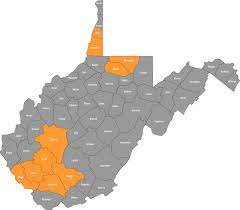From an Article by Hoppy Kercheval, West Virginia Metro News, August 4, 2022
Coal and natural gas are on fire, and the state of West Virginia is a major beneficiary. Prices for the commodities have skyrocketed, in some instances to record levels, generating previously unimaginable severance tax collections for the Capitol treasury.
For example, the price for Central Appalachian thermal coal is close to $180 a ton, three times the price of a year ago. Northern Appalachian coal has risen from about $60 a ton last year this time to over $140.
Natural gas (NG) prices have also pushed significantly higher. A year ago, NG was trading at around $4 per million BTU, but it was trading Wednesday at over $8.
The state imposes a severance tax on extractive resources, and as the price for those resources rises, the amount of money collected also increases. As a result, those severance tax collections are soaring.
The state ended the fiscal year last month with severance tax revenue of $769 million, more than twice the amount projected and almost three times the amount collected the previous fiscal year. And the state is off to a remarkable start so far this year.
West Virginia collected nearly $55 million in severance taxes just in July, 18 times the amount projected late last year when the state Department of Revenue was putting together projections for the next year. In fairness to the prognosticators, no one could have foreseen the rapid and historic rise in demand, especially for coal.
Even Wall Street experts are shocked. Peter O’Conner, senior analyst with Shaw and Partners, told CNBC recently, “Who would have thought that dirty ol’ coal would have been the best-performing equities in the last financial year,” he said.
The war in Ukraine and the subsequent sanctions on Russian energy, combined with increased global demand and the inability of renewables to meet that demand, has forced countries to turn back toward fossil fuels.
O’Conner explained that, at least in the case of coal, price has followed demand. “And supply (of coal) is tight. Why? Because nobody’s building capacity. So that market will stay higher for longer, probably well into (the) 2023 calendar year.”
Commodities often follow boom-bust cycles. That has historically been true for the coal and gas industries in West Virginia, and the state budget has been impacted accordingly. Right now, we are enjoying an unprecedented boom, and West Virginia is benefiting significantly.
#######+++++++#######+++++++#######
COMPREHENSIVE ANALYSIS ~ New Winners, New Losers: Toward a New Energy Security, Article by Morgan Brazilian & Cullen Hendrix, Energy Commentary, August 4, 2022
We are now in what is commonly referred to as an energy transition — moving toward a low-carbon system. This big transition will entail myriad smaller transitions in the techno-social systems around fossil fuels, critical minerals, and the public and private systems that create, store, and distribute power.
These changes will create a new set of challenges and a new set of winners and losers. The global energy system is changing in fundamental ways, but remains deeply interconnected, tied together by data, and less about physical volumes of goods and more about shifting capital deployment. The keys to managing these risks lie in robust, equitable, and interdependent global markets and supply chains, coupled with strong regional partnerships and country alliances.


{ 1 comment… read it below or add one }
DOMINION POST Sunday 4 August 2013, letter to editor:
War on coal? Response to coal’s war on us
To listen to our state politicians, one might think that the U.S. Environmental Protection Agency has tanks and guns overrunning West Virginia.
That the EPA might be starting to feebly enforce decades-old existing laws is not my idea of a war on coal. As a homeowner with an unwanted front-row seat to a strip mine, I know firsthand that few existing laws are ever enforced unless people who live nearby complain.
Drive along Sugar Grove Road from Cassville and see how well one local coal company does post-mining reclamation.
Much of the replaced topsoil on the slope has since washed down into Dents Run. Water flows freely from this mine that is never tested because it does not pass through a National Pollutant Discharge Elimination System outfall.
After I complained to the state Department of Environmental Protection two notices of violation were issued for failure to revegetate, but no fine is to be paid. So why should this coal company do things any differently when the slope directly in front of us needs to be reclaimed?
According to the West Virginia state code, more than three serious blasting violations within a 12-month period should result in the mining permit being revoked.
The strip mine in front of us had four blasting violations in April of this year alone, but they still continue to blast and shake the foundations of the 25 homes in immediate proximity.
And then there’s the 19-hour-a-day noise from heavy equipment and dump trucks and dust that blows off the mine. But there are no laws against that.
The only reason environmental laws are starting to be enforced now is because local people directly impacted by strip mining are starting to complain.
This is not a war on coal but a response to coal’s war on us.
>>> Betsy J. Lawson, Morgantown